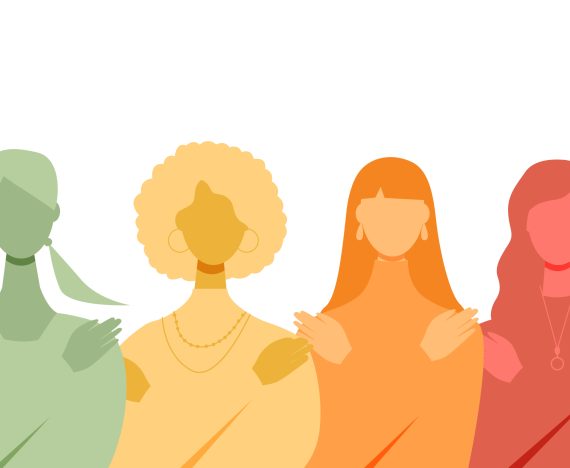Where now with Social Media?


My experience and thoughts
Posted 19 November 2022
Over the last couple of years, many people have left Facebook and Instagram for one reason or another, but Elon Musk’s takeover of Twitter has precipitated a deluge of soul-searching by users as to whether to continue or move elsewhere. And that’s even before most of the employees leave, Trump is allowed to take over the narrative again and the platform collapses once and for all. Meanwhile, while it lasts, few seem motivated to give up altogether. And me? I’ve been meaning to articulate my own thoughts for a long time, but never got around to it until now.
Where I began – with LinkedIn
I suppose that social media for me started with LinkedIn. Back at the start of the century, especially working with American companies, a presence there was essential. A publicly accessible CV. No business person would ever go to a meeting with people they’d never met before without first checking them out on LinkedIn, knowing that they would judge your character in some detail even before you met. Absence wasn’t an option. Nobody wanted to meet a nobody!
At that time, for me at least, my only use of social media was informational. A reliable way of finding out about people I was going to meet (or had unexpectedly met) and of presenting myself to others who might want to know something about me.
But over the years since, LinkedIn served me well in other regards. I wrote articles related to my business, and I sent connection requests to people who I thought would be influential or helpful. My articles were read, often by more than a thousand, and I got good feedback. My connection requests were usually accepted. It was worth paying the subscription for the premium version (and I still do, but am reconsidering).
In the last three or four years, though, LinkedIn has changed.
Well, so have I, of course. LinkedIn has been trying to monetise its service by becoming a type of online employment agency. I don’t want a job, so that aspect is unhelpful. Automated “bots” have been invented, such as Dux-Soup and Autopilot, that can send out hundreds of connection requests and “in-mails” a day. During the pandemic, I got dozens from twenty-something-year-old self-styled “lifestyle coaches” or “business transformation consultants”. More recently, they’re from software developers in developing countries and investment gurus. Whatever. They’re all services I don’t want or need.
Obviously, this must happen to everyone else on LinkedIn, and as a result there’s much reduced engagement. The articles I post or comment on are no more boring than they used to be (at least I think not!) but instead of hundreds of views, it’s down to dozens at most. Sometimes single digits. Connection requests are turned down, even from legitimate acquaintances, possibly because they get lost amongst the mass of unwanted sales approaches, probably because they fear I will try to sell them something (I won’t).
Facebook friends
It took me until 2009 to discover Facebook, but I was an instant convert. Most of my friends and those I worked with around the world were also on the platform and willing to “friend” me. I mostly shared photos of my travels, and they shared pictures of their family, cats and dogs, not to mention painted fingernails. I thought (and still think) that was wonderful. A perfect way to stay in touch, especially with FBFs I only saw rarely or never. They could remind me of them, and I could remind them of me, on a completely no-obligation basis – like what one sees, and want to stay close, then click on “like” or, better, add a comment to say hello. Less interested? Just look, keep any opinions to yourself, and scroll on. Nobody will know or care. Offended? One can un-friend them, and never have to see anything from them again. They probably won’t even know. I’ve never done that, and I think only one person has unfriended me, and then only in pique about something else, not because of anything I put on FB.
But Facebook changed. Idiots posted rude comments, becoming “trolls”. Never happened to me, but an understandable turnoff. I suspect it’s largely affected those who have made political or religious posts, which is foolish of them if they want to stay friends with people. I want to see my FBF’s cats. And fingernails. I don’t want to know their political or religious inclinations, or tell them mine; if they’re contrary, I might think less of them and vice versa.
Most of the people I know best post less than before. All have their own reasons. I stopped posting travel pictures, even though many of my FBFs liked them, because I was warned of the security risk of unintentionally advertising to burglars that I wasn’t at home. Others stopped for their own reasons. Or just got bored. I don’t suppose they stopped painting their nails.
Getting turned off by Adverts and Algorithms
And there’s been an ever-growing number of adverts. I understand that FB (or, rather, Meta) need to monetise their service, but now there are so many ads that it’s often difficult to see the wood for the trees – or pick out friends’ posts from amongst the dross.
And then there’s the famous algorithm. The magic that FB weaves to dictate which posts each user actually sees. FB aficionados will often post something like “how to beat the algorithm”, saying that they have hundreds of friends but see very few posts. Maybe the algorithm is partly to blame, but I see two more likely reasons. One, if one never “likes” or pauses on someone’s posts, the algorithm will assume you’re not interested in them and push them to the bottom of the pile. But user behaviour is also to blame. Many people look at FB but post nothing themselves. Others, it seems, set their posts to “close friends” or another select group.
Instagram takes a different approach, but at the end of the day is similar to Facebook, with similar issues. Tik Tok – what little I have seen of it (so I may be a bad judge) has been too juvenile for my taste, and is mooted to be a platform for Chinese spying. Perhaps President Xi has ordered a global database of dancing children and performing dogs.
Promoting my book – and myself
Since I wrote a book (second one coming up early in 2023!) the publishers and others I’ve spoken to have recommended promoting it – and myself – on FB and Instagram. I set up an ‘Author Page’, and have gone through phases of posting different kinds of content. With ‘friends’ you can post what you like. When you’re using social media to try to impress a new audience of people who don’t know you, however, the problem you face is what sort of posts will appeal and attract them. Keeping up the momentum of frequent posts is hard work. And the effort is possibly counter-productive, in that I’m still unsure that these platforms actually help sell books, and meanwhile, in the absence of “likes”, I’m afraid that turning myself into an advertiser may have irritated (or worse) my real friends.
Turning to Twitter – a late convert
Earlier this year, encouraged by book marketers, I turned my attention to Twitter, a platform I’d hardly engaged with before. For someone craving attention, it offers many advantages over other media. Instead of “friends”, one has “followers”, which somehow makes more sense. The idea is that if you see interesting posts from someone you don’t know, you follow them to keep up with what they post in the future. Perhaps they have politics you agree with, or post interesting insights, or make good jokes. You don’t even have to follow them – click on “like” and you’ll probably be shown their future posts by the Twitter algorithm.
Time was that getting one’s posts seen on Twitter, so I’m told, depended on embedding the right hashtags. Now their algorithm may show your posts to others based on its interpretation of similarity and what those others have “liked”. So, if you post about black cats, say, and someone else has previously liked posts by someone else they are following who also posts about black cats, then your posts may be presented to them. If they then “like” your post (or comment or retweet it) then not only will they see your future posts, whether or not they follow you, but the algorithm will determine that you are an authority on black cats and show your posts to further ailurophiles. Or, at least, that’s what, from observation, I think it does.
Social media gurus tell you that what you really need on Twitter is “followers”. On their own, though, that’s not enough. By default, Twitter sets every user’s feed to “Home Tweets”. Their definition of “Home” is the mix of posts from those whose posts you have liked or commented on or retweeted in the past, similar tweets from others who have met the popularity check I described above, and, of course, “curated” adverts. Leave your Twitter feed set to “Home” and, though you may follow a thousand others, you are unlikely to see anything that most of them tweet, unless you have engaged with one from them before. Switch the profile to “Latest” and watch the transformation.
So, since there’s no point to being on Twitter unless you want to be seen, you totally depend on posting outspoken (and preferably outrageous) opinions so that others will not only follow but like or retweet. Proof? I spent a month having someone post anodyne content on my behalf four or five times a day. Typical engagement was just two or three views per post. During the month, I added two new followers. Then I posted a few more outspoken comments related to other people’s articles and responded to a few tweets from people I don’t know. Result – about twenty new followers. Not that it’s done me any good.
Just as I got to like Twitter – is it now the end?
Then, talking about outspoken and outrageous, along came Elon Musk. He may very well be objectionable, not to mention having an utterly unacceptable approach to HR, but I can’t see that who owns a social media platform of itself makes any difference to its effectiveness or value. Nevertheless, many frequent tweeters say they are leaving, and may have left (though those who I know who said they were leaving still seem to be active on the platform). If, as some fear, the reduction in moderation increases “hate speech” tweets, and it once again becomes inextricably linked with the crazed musings of right wing tyrants, then perhaps all of us who consider ourselves sane will get out, and leave the inmates to run the asylum.
Meanwhile, what point is there to going elsewhere?
Considering the nascent alternatives such as Mastodon speaks more to a determination to go on trying to get noticed than to wanting to pursue the intelligent conversation that Twitter continues to offer on some of its threads. To my mind, either we make the most of the platforms we have, and fight the algorithms, or we say that social media was fun while it lasted and it’s now dead. Which would be a shame; above all else, all of these, LinkedIn, Facebook, Instagram and Twitter, delivered a promise of being able to engage with like-minded individuals all around the planet. Those people might never become our true friends, but we can at least take the first steps.
I welcome comments – either in the comments box below, or write directly to me – or contact me on any of the social media platforms I’m still on – the links are on my contact page
For more details about my book, “There’s No Business Like International Business”, click here






